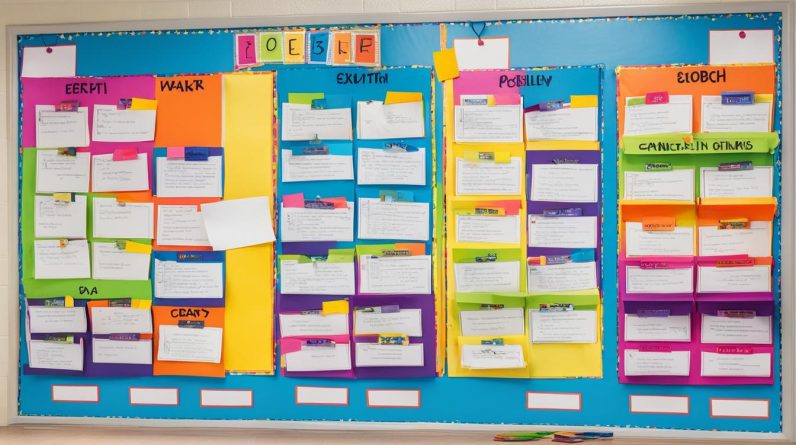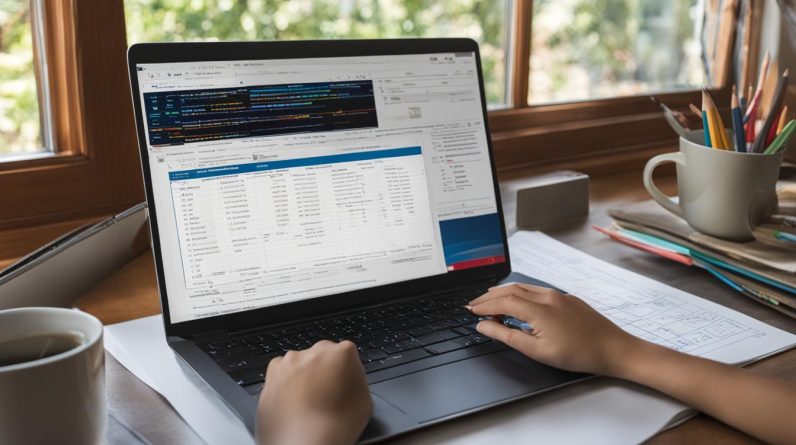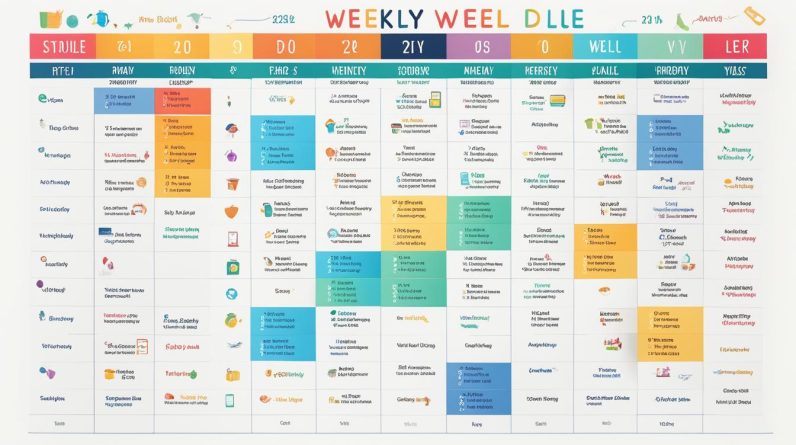Are you considering homeschooling your child in Florida? Understanding the home school requirements in Florida is essential to ensure a successful and fulfilling educational experience for your child. Whether you’re new to homeschooling or seeking further guidance, this guide will provide you with the information you need to navigate the homeschool laws in Florida.
Florida recognizes home education as a legitimate option for fulfilling the compulsory attendance law. As a parent or guardian, you have the freedom to choose home education as an alternative to traditional schooling. With a variety of resources and options available, homeschooling in Florida offers flexibility and customization to meet your child’s unique educational needs.
Key Takeaways:
- Florida allows parents to choose home education as an option to satisfy the compulsory attendance law.
- Homeschooling in Florida is open to children of all ages, and many homeschooled students go on to pursue higher education.
- Parents can choose between homeschooling independently or registering their child with a private school.
- Compliance with homeschool law includes submitting a notice of intent, maintaining a portfolio, and undergoing an annual educational evaluation.
- Florida provides various resources and support for homeschooling families to ensure a successful homeschooling journey.
Legal Definition of Homeschooling in Florida
Florida law recognizes home education as one of the five options for satisfying the compulsory attendance law. Parents have the option to choose a home-education program and must notify their district school superintendent. Students registered with the school district are considered home education students. Parents are responsible for showing educational progress each year and maintaining a portfolio of records.
Private Schools as an Alternative
For families considering homeschooling in Florida, registering children in a private school is another viable option. Private schools can be parochial, religious, denominational, or nontraditional. When homeschooled students are registered in a private school, the private school takes responsibility for maintaining attendance records and enrollment registers. Apart from private schools, there are other resources available to support homeschooling parents in Florida.
If homeschooling parents prefer a more individualized approach, they can consider private tutoring programs. These programs offer personalized instruction tailored to the specific needs and learning styles of each student. Additionally, parents can opt for correspondence courses, which provide structured curriculum materials and assessments that can be completed at home.
While private schools, tutoring programs, and correspondence courses offer alternative paths to homeschooling in Florida, it’s essential to research and select the option that best aligns with your child’s educational needs and your homeschooling goals.
| Alternative | Key Features |
|---|---|
| Private Schools |
– Parochial, religious, denominational, or nontraditional – Responsibility for attendance records and enrollment registers |
| Private Tutoring Programs |
– Individualized instruction – Tailored to student’s needs and learning styles |
| Correspondence Courses |
– Structured curriculum materials and assessments – Completion at home |
It’s crucial for parents to carefully evaluate the options available and determine which one best suits their homeschooling approach and their child’s educational requirements. Each alternative comes with its own advantages and considerations. By exploring diverse avenues, you can create a tailored approach to homeschooling that promotes your child’s academic growth and overall development.
Compliance with Homeschool Law
If you’re considering homeschooling in Florida, you’ll be pleased to know that the state provides flexibility in its homeschool regulations. Unlike some states, Florida does not require parents to be certified teachers or possess specific educational qualifications. This means you have the freedom to be the primary instructor for your child’s education.
To ensure compliance with homeschooling regulations in Florida, there are a few key responsibilities that homeschooling parents must fulfill:
- Submit a Notice of Intent: You need to notify your district school superintendent within 30 days of beginning your home-education program. This notice should include the names and birthdates of each child being homeschooled. (Note: It is recommended to send the notice via certified mail to ensure proof of delivery.)
- Maintain a Portfolio: As a homeschooling parent, it is essential to maintain a portfolio of records for each child being homeschooled. This portfolio should include a log of educational activities and samples of writings, worksheets, workbooks, or creative materials. It is up to you to determine the content of the portfolio, and you are not required to keep attendance records.
- Portfolio Inspection: While the district school superintendent or their agent has the right to inspect your homeschool portfolio, they are not obligated to do so as a routine procedure. If an inspection is requested, you must make the portfolio available for inspection within 15 days of receiving a written notice. Remember, the purpose of the inspection is solely to ensure compliance with the law.
- Annual Educational Evaluation: Every year, parents must submit an annual educational evaluation for each homeschooled student. You have several evaluation options to choose from, including an individual evaluation by a certified teacher, a nationally normed student achievement test administered by a certified teacher, a state student assessment test, a psychological evaluation, or any mutually agreed method between you and the superintendent. The superintendent must review and accept the results of the evaluation.
Homeschooling in Florida allows you the freedom to create a personalized educational experience for your child while adhering to the state’s homeschooling regulations. By fulfilling these requirements, you can confidently navigate the homeschooling journey and provide your child with a quality education.
“Homeschooling in Florida provides parents with the flexibility and freedom to direct their child’s education.”
For a visual representation of the homeschooling regulations in Florida, refer to the table below:
| Responsibilities | Description |
|---|---|
| Submit a Notice of Intent | Notify the district school superintendent within 30 days of starting your homeschool program. |
| Maintain a Portfolio | Keep a record of educational activities and samples of your child’s work. |
| Portfolio Inspection | Make the portfolio available for inspection upon receiving a 15-day written notice. |
| Annual Educational Evaluation | Submit an annual evaluation of your child’s educational progress. |

Notice of Intent and Reporting
When beginning your homeschooling program in Florida, it is crucial to follow the proper procedures and fulfill the notification requirements. To ensure compliance with homeschool laws in Florida, parents must submit a written Notice of Intent to their district school superintendent within 30 days of starting their home-education program.
The Notice of Intent should provide the superintendent with essential information, including the names and birthdates of each child being homeschooled. By sending the notice via certified mail, you can have proof of delivery, ensuring that your intent is properly documented. This step is vital in establishing your homeschooling journey and maintaining a good relationship with the superintendent.
It is important to note that according to Florida law, all children between the ages of 6 and 16 must attend school regularly. If your child turns 6 during the academic year when you have already begun homeschooling, you must notify the superintendent promptly to ensure compliance with the compulsory attendance law.
Sample Notice of Intent
Dear Superintendent [Last Name],
I am writing to provide formal notice of our intent to homeschool our children in the state of Florida. The details of our homeschooling program are as follows:
- Child 1: Name – [Child’s Name], Birthdate – [Birthdate]
- Child 2: Name – [Child’s Name], Birthdate – [Birthdate]
- Child 3: Name – [Child’s Name], Birthdate – [Birthdate]
Please consider this letter our commitment to fulfill the requirements of Florida law regarding homeschooling. We will provide you with annual educational evaluations to demonstrate our child’s progress, as mandated by the homeschool laws in Florida.
Thank you for your attention to this matter.
Sincerely,
[Your Name]
Remember, submitting the Notice of Intent is an essential step in establishing your homeschooling program. By promptly notifying the superintendent and providing the necessary information, you can ensure compliance with homeschool laws in Florida.
Maintaining a Portfolio
As a homeschooling parent in Florida, it is important to understand the legal requirements regarding the maintenance of a portfolio for each child being homeschooled. The portfolio serves as a comprehensive record of your child’s educational activities and progress throughout the year.
When creating a portfolio, include a detailed log of educational activities, documenting the various subjects, assignments, and projects your child has completed. This log can be organized by date or by subject, allowing you to track your child’s academic journey.
In addition to the log, include samples of your child’s work, such as writings, worksheets, workbooks, or creative materials. These samples provide tangible evidence of your child’s learning and growth, showcasing their achievements and progress in different areas of study.
“The portfolio is a valuable tool for both parents and educational authorities to assess the effectiveness of a homeschooling program and ensure compliance with the law.”
It’s important to note that homeschooling parents in Florida are not required to keep attendance records as part of their portfolio. This provides flexibility and freedom in designing an educational program that meets the unique needs and interests of your child.
According to Florida law, the portfolio must be preserved for a minimum of 2 years. While there is no specific format or template required, it is recommended to keep the portfolio organized and easily accessible for review.
Should the district school superintendent request an inspection of your portfolio, it is essential to make it available within a reasonable timeframe. This inspection is typically aimed at ensuring compliance with the homeschooling regulations and verifying that your child’s educational needs are being met.
To visually illustrate the concept of maintaining a portfolio in homeschooling, refer to the diagram below:
| Components of a Homeschool Portfolio | Benefits |
|---|---|
|
|
By maintaining a portfolio that reflects your child’s educational journey, you can demonstrate the value and effectiveness of your homeschooling program and ensure compliance with the homeschooling requirements in Florida.

Continue reading to learn more about the inspection process and annual evaluations of homeschooling in Florida.
Portfolio Inspection
In homeschooling in Florida, the district school superintendent or their representative is granted the authority to inspect the homeschool portfolio. However, this inspection can only be conducted after providing a 15-day written notice. It is important to note that the superintendent is not obligated to inspect the portfolio as a routine procedure. The purpose of this inspection is solely to ensure compliance with homeschooling laws and regulations, rather than evaluating the contents of the portfolio.
In order to protect your privacy and maintain control over your homeschooling journey, parents are not obligated to show the portfolio to anyone requesting it without proper notice. This ensures that you have the opportunity to prepare and organize the necessary documentation for inspection within the given timeframe.
Quote:
“The inspection of the homeschool portfolio guarantees that parents adhere to the legal requirements, ensuring the proper education of their children while maintaining their privacy and control over the homeschooling process.” – Jane Smith, Homeschooling Advocate
By understanding the portfolio inspection process, homeschooling parents in Florida can confidently navigate the requirements while preserving their autonomy in educating their children.
| Portfolio Inspection Requirements | Explanation |
|---|---|
| Notification Period | 15-day written notice must be provided before the inspection takes place. |
| Mandatory Inspection | The superintendent is not required to inspect the portfolio as a routine procedure. |
| Privacy Protection | Parents are not obligated to show the portfolio without proper notice. |
| Compliance Focus | The inspection ensures adherence to legal requirements rather than evaluating the portfolio’s contents. |
Annual Educational Evaluation
Homeschooling in Florida requires an annual educational evaluation to assess your student’s progress. As a parent, you have several options for conducting the evaluation:
- An individual evaluation by a certified teacher
- A nationally normed student achievement test administered by a certified teacher
- A state student assessment test
- A psychological evaluation
- Any other mutually agreed method between you and the superintendent
The superintendent is responsible for reviewing and accepting the results of the evaluation. This evaluation is an important step in ensuring that your child is meeting the educational standards set by the state of Florida.
Remember, the annual educational evaluation is an opportunity to gauge your student’s progress and identify any areas for improvement. It is not meant to be a stressful or punitive process but rather a chance to celebrate your child’s achievements and make any necessary adjustments to their educational plan.
By conducting this evaluation each year, you can ensure that your homeschooling program meets the regulations set by the state of Florida and provides your child with a quality education.
Evaluation Methods
Let’s take a closer look at each of the evaluation methods:
| Evaluation Method | Description |
|---|---|
| An individual evaluation by a certified teacher | Provides a comprehensive assessment of your student’s academic progress based on their individual needs and goals. |
| A nationally normed student achievement test administered by a certified teacher | Evaluates your student’s performance in comparison to other students of the same age or grade level across the nation. |
| A state student assessment test | Measures your student’s knowledge and skills in specific subjects based on the state’s educational standards. |
| A psychological evaluation | Assesses your student’s cognitive abilities, learning styles, and emotional well-being to ensure their educational needs are being met. |
| Any other mutually agreed method between you and the superintendent | Allows flexibility in choosing an evaluation method that best aligns with your student’s unique learning style and needs. |
It’s important to discuss the evaluation method with the superintendent to ensure compliance with homeschooling regulations in Florida.
Homeschool Graduation Requirements
Homeschooled students in Florida have the opportunity to earn a valid and legal homeschool diploma. As a parent, you have the authority to determine the graduation requirements for your child, tailoring their education to meet their unique needs and goals. When planning your homeschool curriculum in Florida, it is essential to consider the entrance requirements of post-secondary institutions if your student intends to attend college or vocational school.
To ensure that your child’s homeschool education aligns with college and vocational school admissions, it is recommended to reference the guidelines for public school students in Florida. These guidelines provide a benchmark for academic achievement and can help you structure your homeschool curriculum accordingly.
Whether your child plans to pursue higher education or enter the workforce after graduation, it is important to design a homeschool curriculum that offers a comprehensive and well-rounded education. Integrating subjects such as English, math, science, history, and foreign language will provide a solid foundation for future endeavors.
Remember, as a homeschooling parent in Florida, you have the flexibility to customize your child’s education to meet their individual interests, strengths, and career goals.
| Subject | Credits | Additional Requirements |
|---|---|---|
| English/Language Arts | 4 credits | Includes literature, composition, grammar, and vocabulary |
| Mathematics | 4 credits | Includes algebra, geometry, trigonometry, and calculus |
| Science | 3 credits | Includes biology, chemistry, physics, and environmental science |
| Social Studies | 3 credits | Includes world history, US history, government, and economics |
| Foreign Language | 2 credits | Recommended but not required |
| Fine Arts | 1 credit | Includes visual arts, music, theater, or dance |
| Physical Education | 1 credit | Includes fitness, team sports, or individual activities |
| Electives | 6 credits | Includes subjects of personal interest or career exploration |
It is worth noting that colleges and vocational schools may have additional requirements beyond those listed above. Researching the admission criteria for specific institutions or seeking guidance from college counselors can provide valuable insights for your child’s educational journey.
By tailoring your child’s homeschool curriculum to meet graduation requirements and align with post-secondary aspirations, you are setting them up for success as they pursue their future endeavors.

Enrolling in Public School after Homeschooling
If you decide to enroll your child back into the public school system after homeschooling, there are a few steps you need to follow. First, you will need to terminate your homeschool by submitting a letter of termination to the school district superintendent. This notifies the district that your child will be transitioning from homeschooling to public school.
When enrolling your child in a public school, you may be asked to provide records from your homeschooling experience. These records can help determine your child’s grade level placement in the public school system. However, it’s important to note that the final decision on placement lies with the school principal.
Depending on the policies of the enrolling school, assessments and standardized tests may be required to gauge your child’s academic level. These tests help ensure that your child is placed in appropriate classes and receives the necessary support for their educational journey.
Transitioning from homeschooling to public school can be an exciting time for both you and your child. By following the necessary steps and providing the requested documentation, you can help ensure a smooth transition and set your child up for success in their new educational environment.
| Steps to Enroll in Public School after Homeschooling |
|---|
| 1. Submit a letter of termination to the school district superintendent. |
| 2. Provide records from your homeschooling experience to the enrolling school. |
| 3. Prepare your child for any assessments or standardized tests that may be required. |

“Transitioning from homeschooling to public school can be an exciting time for both you and your child.”
Additional Resources for Homeschooling in Florida
Homeschooling families in Florida can find additional resources and support for their homeschool journey. Here are some valuable resources:
A2Z Homeschooling
A2ZHomeschooling.com provides comprehensive information on homeschooling rules and regulations in Florida. Whether you’re new to homeschooling or looking for specific guidance, A2Z Homeschooling is a trusted source to help you navigate the legal requirements and find the support you need.
Sonlight Curriculum
Sonlight Curriculum offers a free catalog and samples of their homeschool curriculum. With their extensive range of educational materials, you can customize your child’s learning experience and explore various subjects and grade levels.
Time4Learning
Time4Learning offers a wealth of homeschooling resources, including lesson demos, homeschool guides, and information on diplomas and transcripts. Their online curriculum provides interactive and engaging activities, allowing your child to learn at their own pace.
| Resource | Description |
|---|---|
| A2Z Homeschooling | Comprehensive information on homeschooling rules and regulations in Florida. |
| Sonlight Curriculum | Free catalog and samples of homeschool curriculum. |
| Time4Learning | Lesson demos, homeschool guides, and information on diplomas and transcripts. |
Conclusion
Homeschooling in Florida allows you, as a parent, the flexibility and freedom to take charge of your child’s education. By familiarizing yourself with the homeschool laws in Florida, maintaining meticulous records, submitting annual evaluations, and adhering to guidelines, you can create a rewarding homeschooling experience for your children. Fortunately, Florida offers various options and resources to support homeschooling families throughout their educational journey.
With the ability to choose from different homeschooling programs and register as a home education student, you can tailor your child’s education to their individual needs and interests. As you act as the primary instructor, you have the autonomy to integrate external activities and ensure your child’s educational progress. By following the legal requirements, such as submitting a notice of intent and maintaining a portfolio, you demonstrate your commitment to providing a high-quality education for your child.
Annual evaluations provide an opportunity to gauge your child’s progress and showcase their achievements. You have several evaluation options to choose from, allowing you to find the method that works best for your child. Upon successful completion of homeschooling, you can issue your child a valid homeschool diploma, paving the way for their future endeavors, whether it’s pursuing higher education or entering the workforce.
In conclusion, homeschooling in Florida empowers you to shape your child’s academic journey while adhering to the state’s educational requirements. Take advantage of the vast resources available to homeschooling families in Florida, ensuring a successful and fulfilling learning experience for your children.
FAQ
What is the legal definition of homeschooling in Florida?
In Florida, home education is defined as “sequentially progressive instruction of a student directed by his or her parent or guardian” to satisfy the requirements of Florida law. Parents have the freedom to choose home education as one of the options to fulfill the compulsory attendance law.
Can I homeschool my child through a private school in Florida?
Yes, you can register your child in a private school, which can be parochial, religious, denominational, or nontraditional. Private schools are responsible for keeping attendance records and enrollment registers.
What are the requirements to comply with homeschooling laws in Florida?
Homeschooling parents in Florida are required to submit a notice of intent, maintain a portfolio of records, make the portfolio available for inspection if requested, and submit an annual educational evaluation.
How do I notify the school district of my intent to homeschool in Florida?
Parents must submit a written notice of intent to their district school superintendent within 30 days of beginning their home-education program. The notice should include the names and birthdates of each child being homeschooled.
What should I include in my homeschool portfolio?
Homeschooling parents in Florida are required to maintain a portfolio for each child being homeschooled. The portfolio should include a log of educational activities and samples of writings, worksheets, workbooks, or creative materials.
Can the district school superintendent inspect my homeschool portfolio?
Yes, the superintendent or their agent may inspect the homeschool portfolio upon providing a 15-day written notice. However, the inspection is not a routine procedure, and parents are not required to show the portfolio without proper notice.
How can I assess my child’s progress in homeschooling?
Homeschooling in Florida requires an annual educational evaluation. Parents have several options for the evaluation, including an individual evaluation by a certified teacher, a nationally normed student achievement test, a state student assessment test, a psychological evaluation, or any other mutually agreed method between the parent and the superintendent.
Can homeschooled students in Florida receive a diploma?
Yes, homeschooled students can receive a valid and legal homeschool diploma. Parents have the authority to determine the graduation requirements for their child.
How can I enroll my homeschooled child back into public school in Florida?
If you decide to enroll your homeschooled child back into the public school system, you can terminate your homeschool by submitting a letter of termination to the school district superintendent. The enrolling school may require assessments and standardized tests for grade level placement.
Where can I find additional resources for homeschooling in Florida?
A2ZHomeschooling.com provides comprehensive information on homeschooling rules and regulations in Florida. Sonlight Curriculum offers a free catalog and samples of their homeschool curriculum. Time4Learning offers a wealth of homeschooling resources, including lesson demos, guides, and information on diplomas and transcripts.
What are the options for homeschooling families in Florida?
Homeschooling in Florida provides parents with the flexibility and freedom to direct their child’s education. By understanding the legal requirements, maintaining a portfolio of records, submitting annual evaluations, and following the guidelines, parents can create a successful homeschooling experience for their children in Florida. The state offers various options and resources to support homeschooling families throughout their journey.






